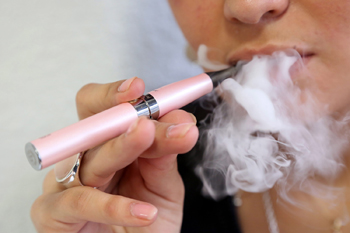 Dec 16: They are marketed as being healthier than conventional cigarettes, but new research suggests people who smoke electronic cigarettes could still be inhaling a host of dangerous chemicals.
Dec 16: They are marketed as being healthier than conventional cigarettes, but new research suggests people who smoke electronic cigarettes could still be inhaling a host of dangerous chemicals.
People who smoke e-cigarettes may inhale higher concentrations of nicotine and of other toxins, say U.S researchers.
Nicotine is both addictive and, in large quantities, toxic - and some of the other chemicals found in e-cigarettes are believed to be carcinogenic.
Researchers at New York University found that due to the "frequency of puffing" and "depth of inhalation" e-cigarette smokers absorb higher levels of harmful chemicals than those who smoke traditional cigarettes.
Initially, e-cigarettes were seen as a healthier, tobacco-free alternative for people who were addicted to nicotine.
However, things have changed rapidly and they are now often smoked by people who have never smoked traditional cigarettes.
Dr Deepak Saxena, associate professor of basic science and craniofacial biology, said: "The issue is urgent as a recent survey conducted among students at eight U.S. colleges found that 12 per cent of e-cig users had never smoked a conventional cigarette."
The U.S. Food and Drug Administration and the American Lung Association have cautioned that e-cigarette users are unknowingly inhaling vaporised chemicals.
E-cigarettes use a heating device to vaporise nicotine and other ingredients which simulate the visual, sensory, and behavioural aspects of smoking without the combustion of tobacco.
E-cigarettes employ a mechanism to heat up liquid nicotine, which turns into a vapour that smokers inhale and exhale, a process known as "vaping".
Each nicotine cartridge in an e-cigarette can provide 200 to 400 puffs, equivalent to two to three packs of cigarettes.
"Due to the frequency of puffing, depth of inhalation, and length of vaping," says Dr Xin Li, "e-cig users may actually absorb higher concentrations of nicotine and other toxins than conventional tobacco smokers."






Comments
Add new comment